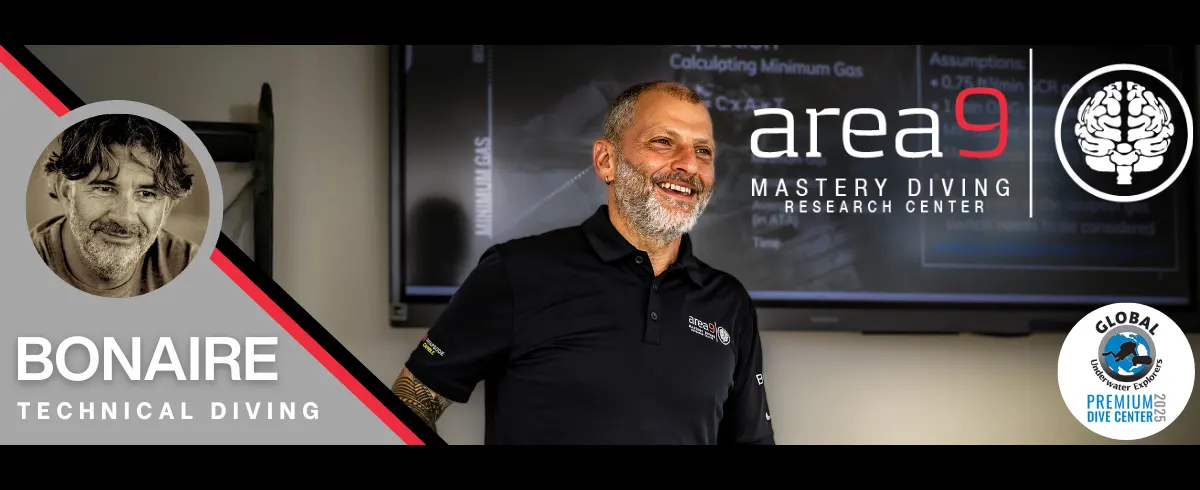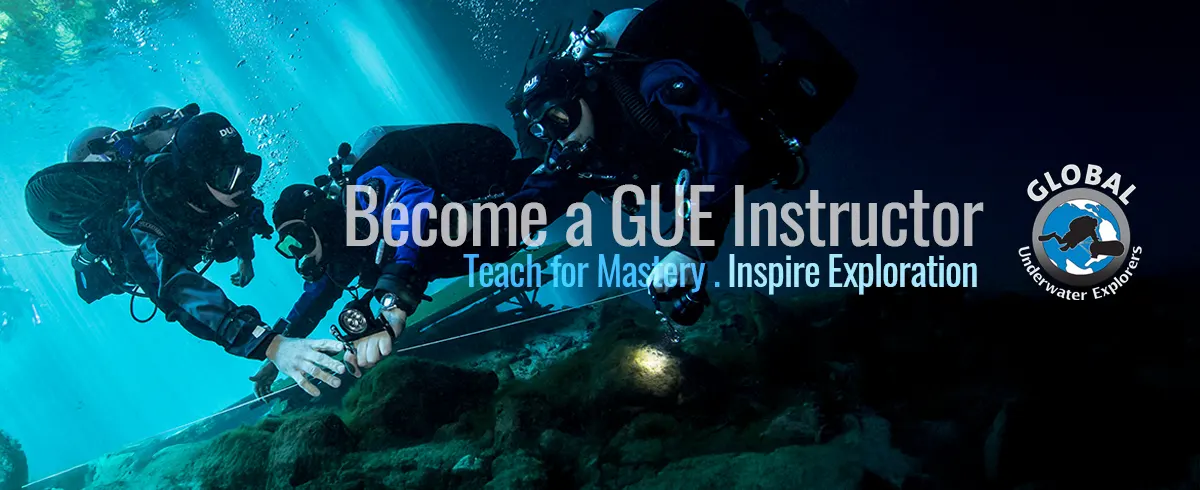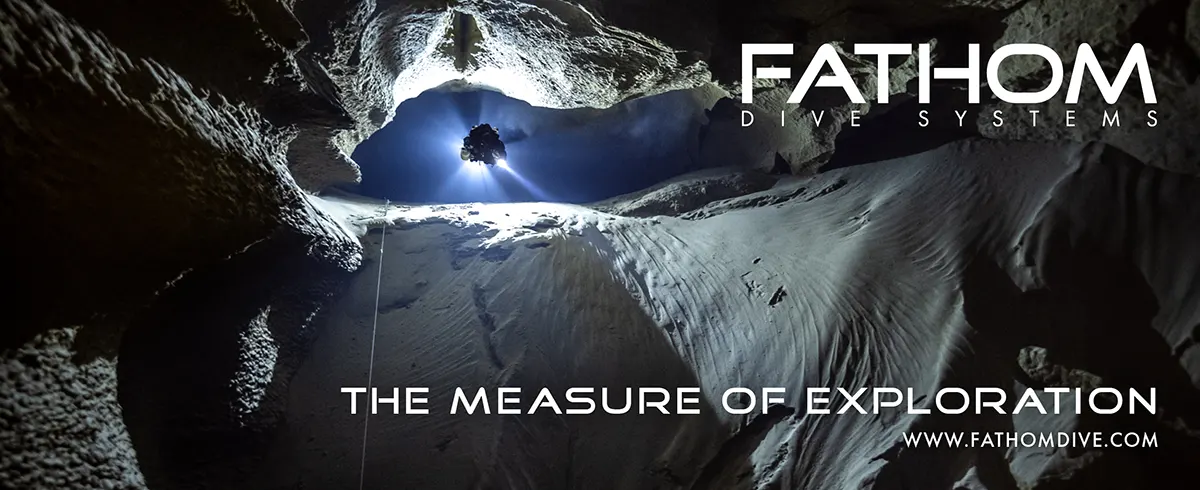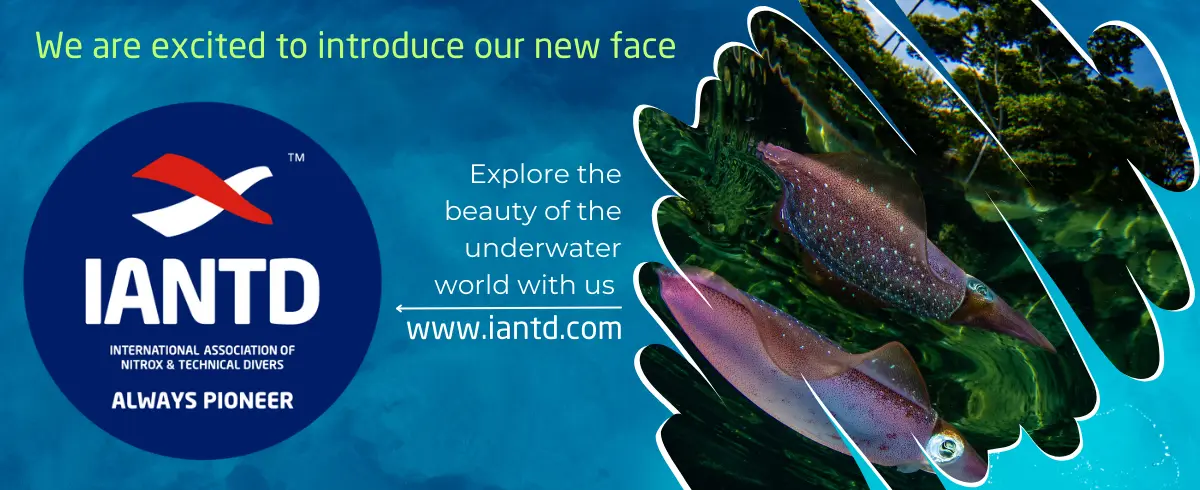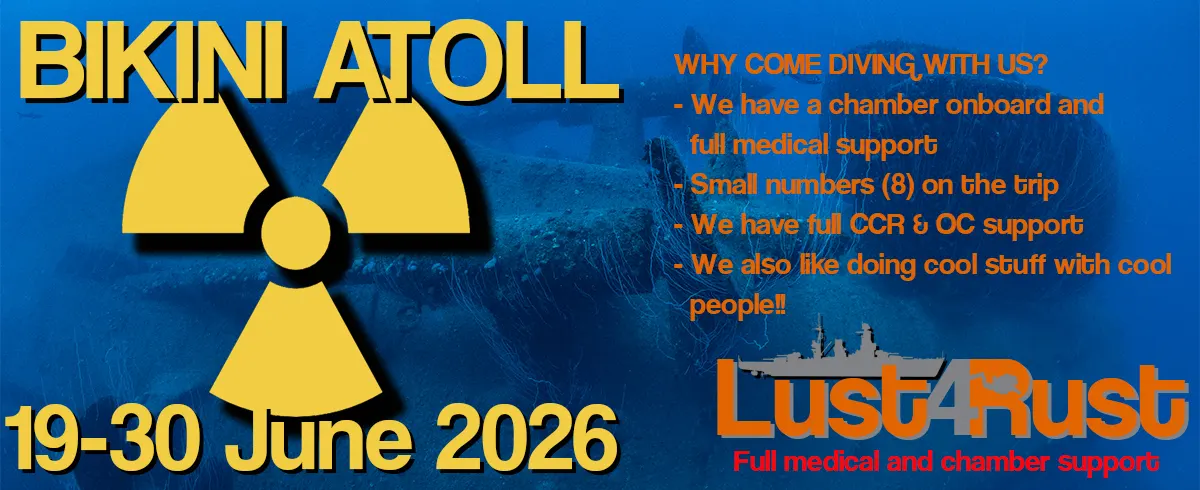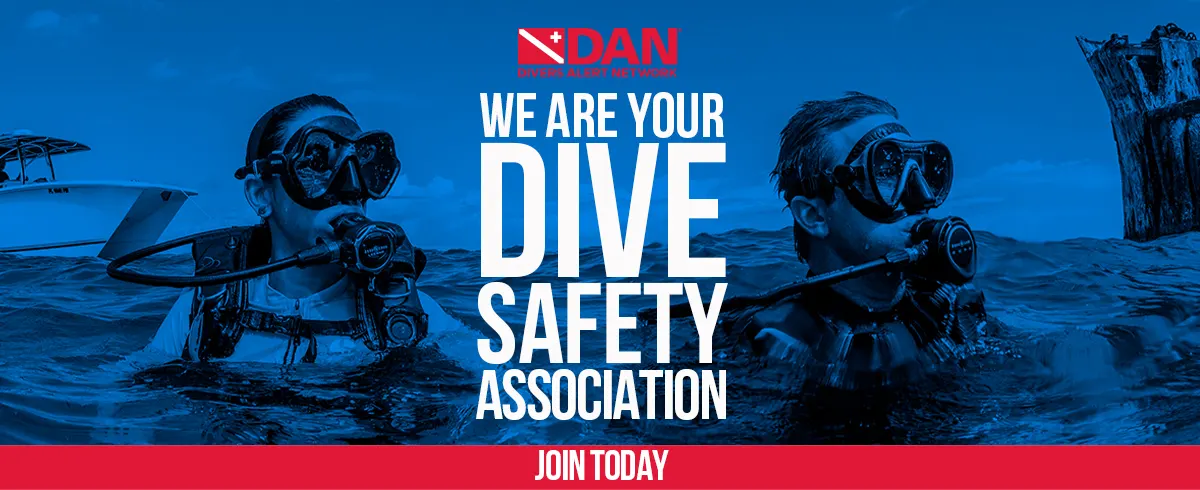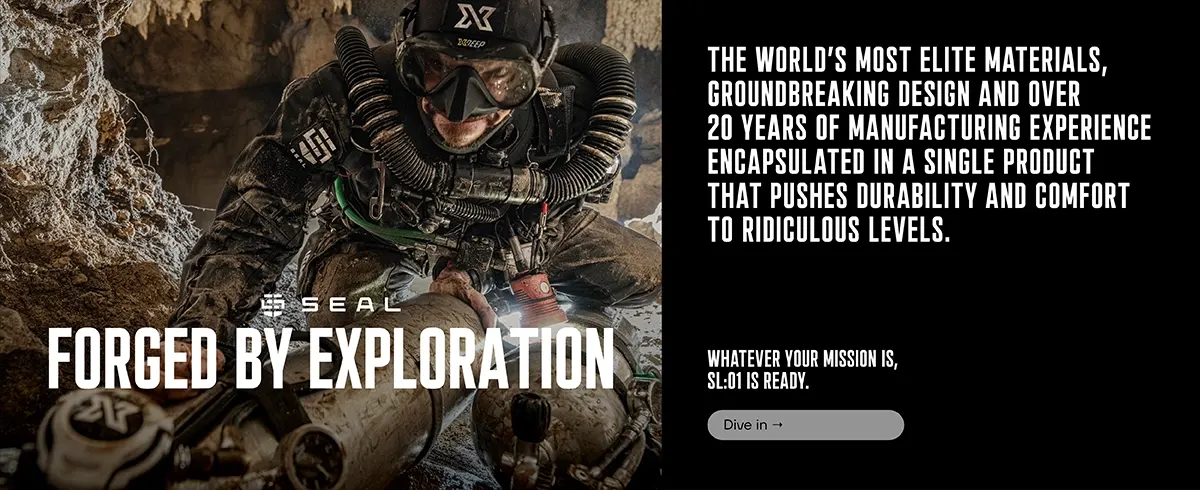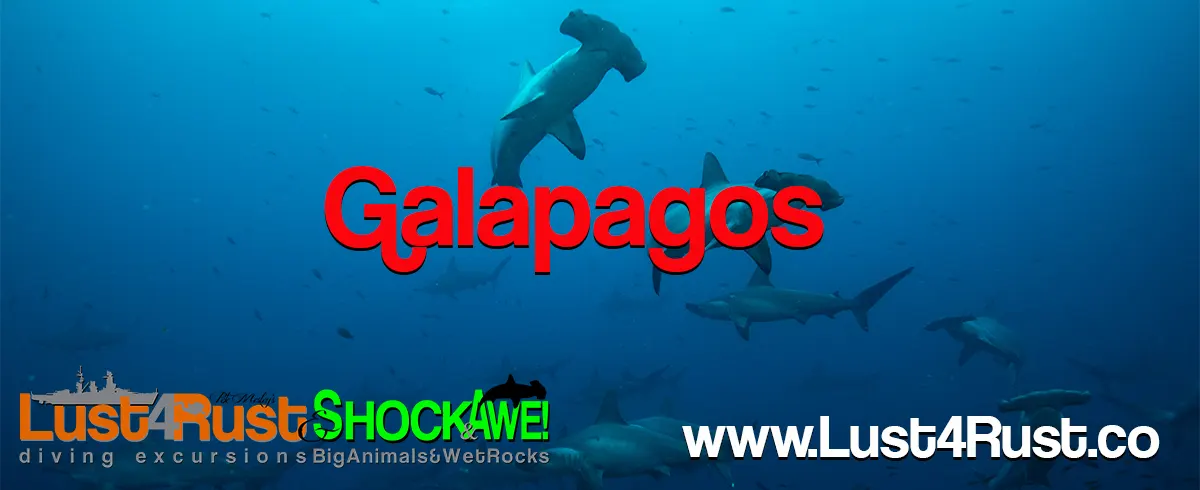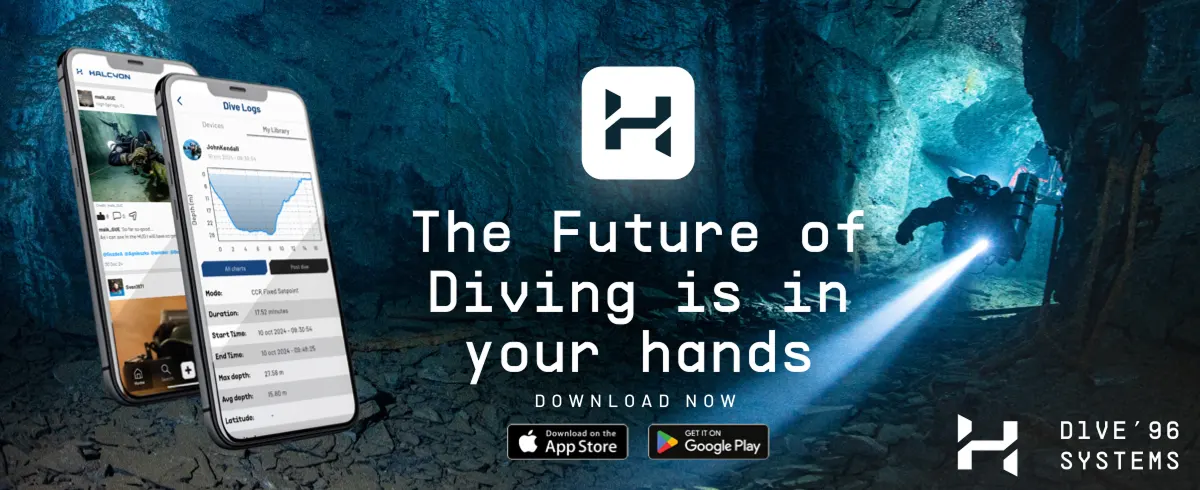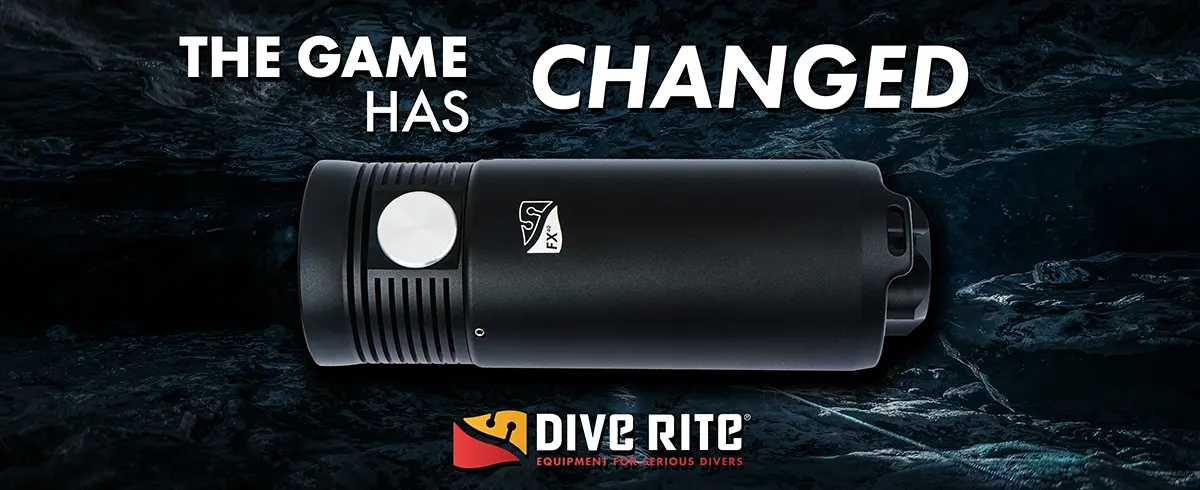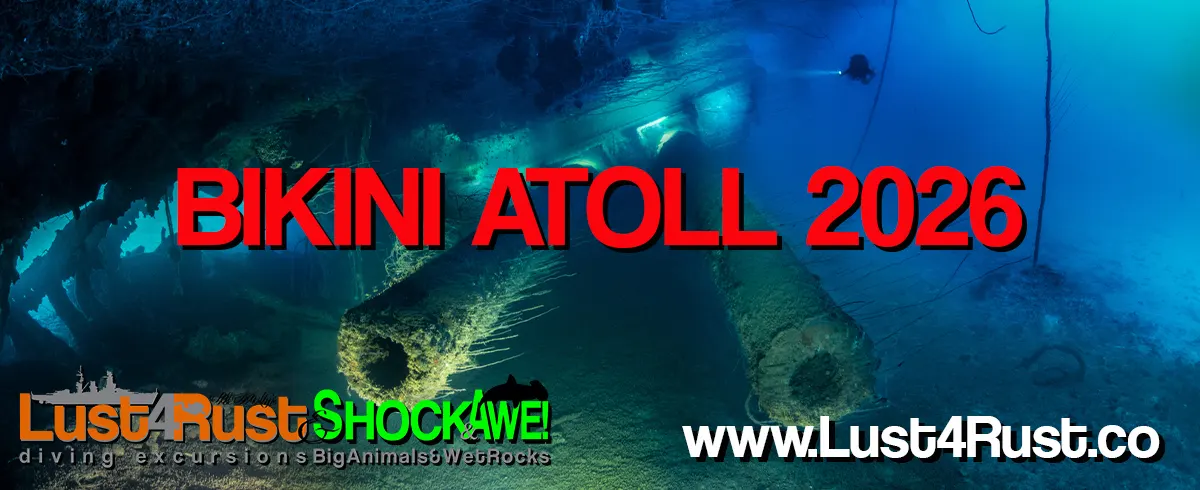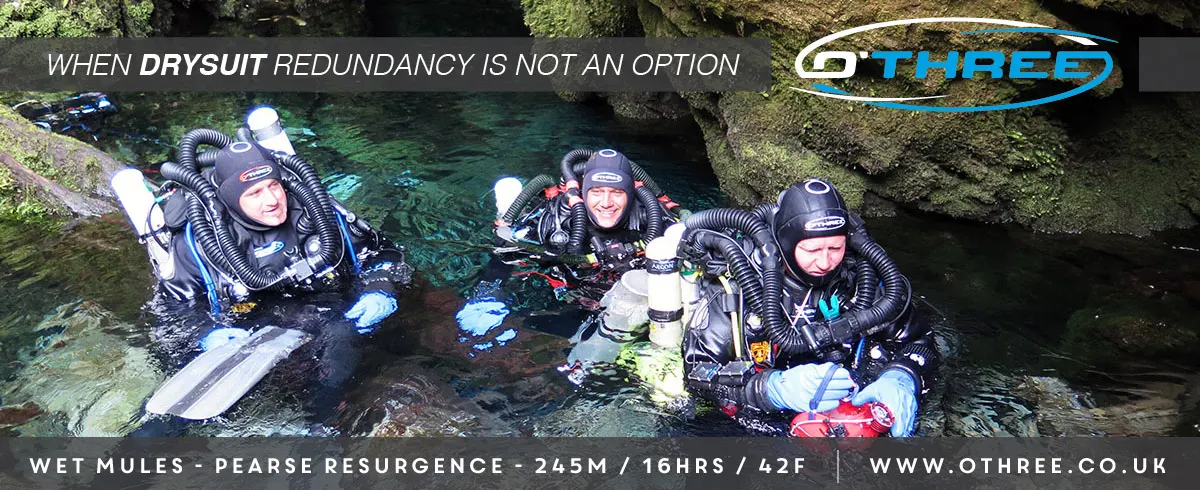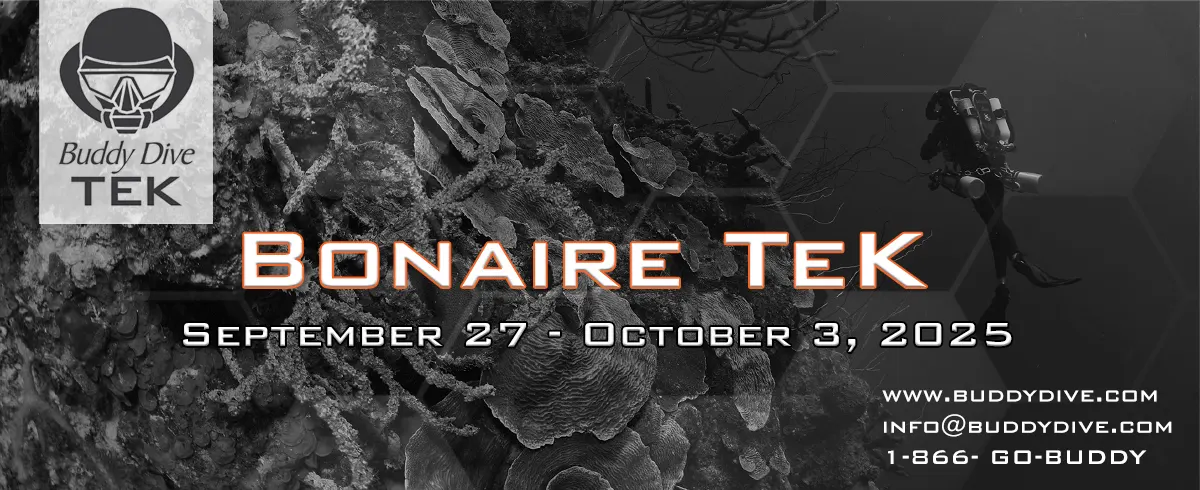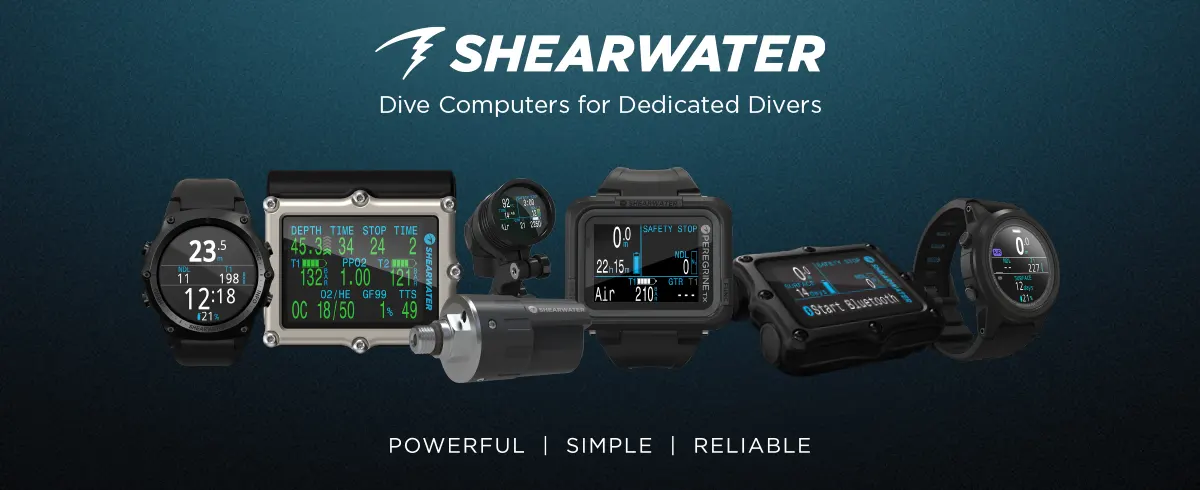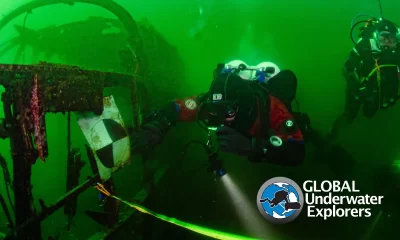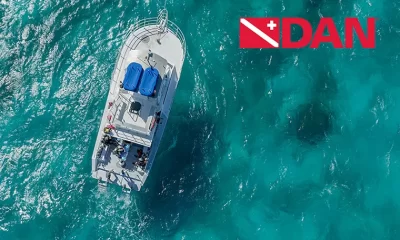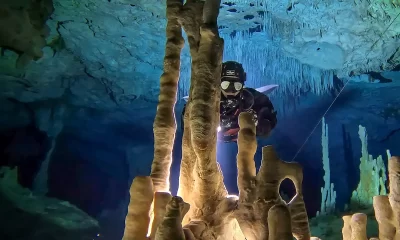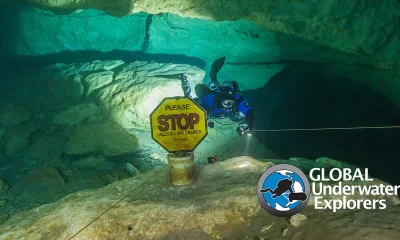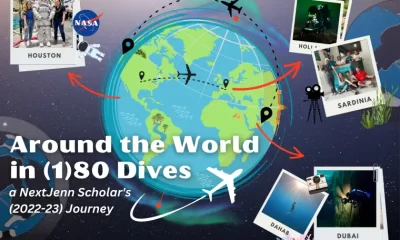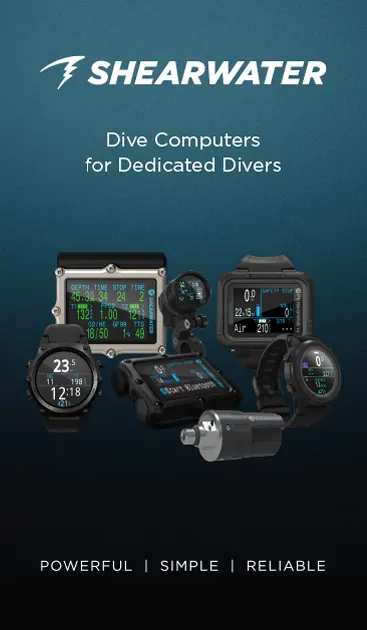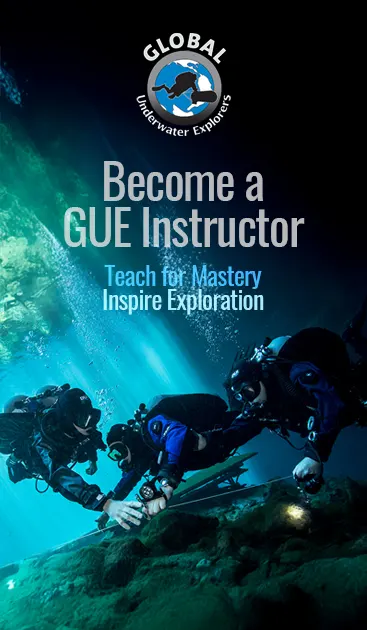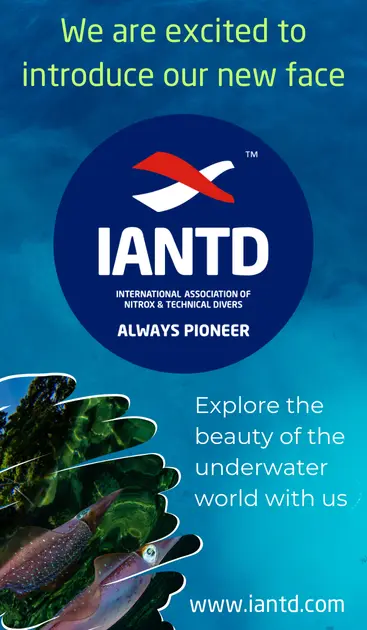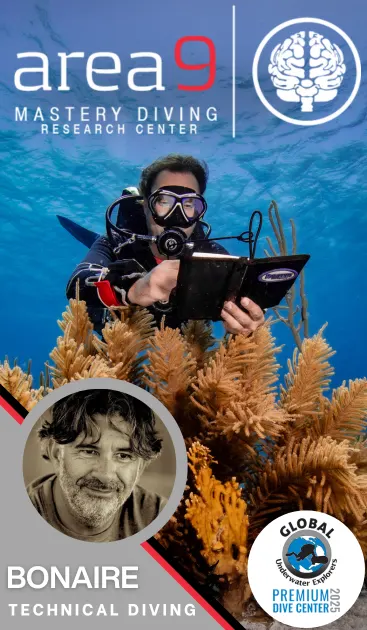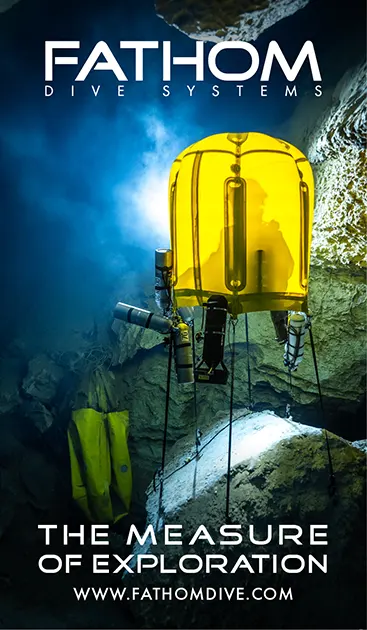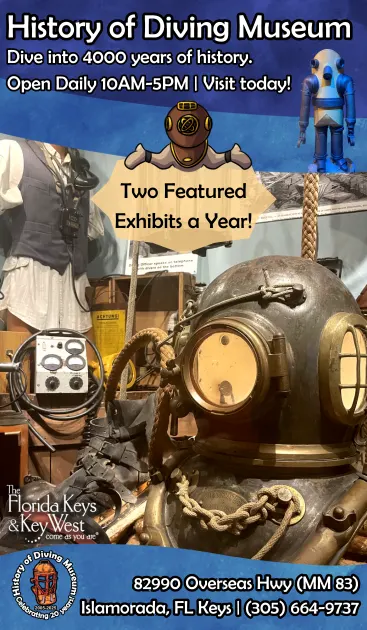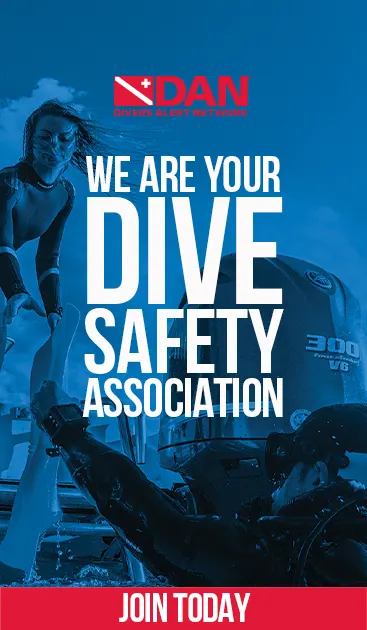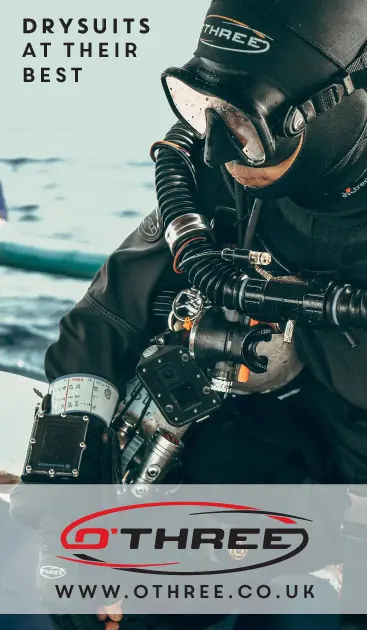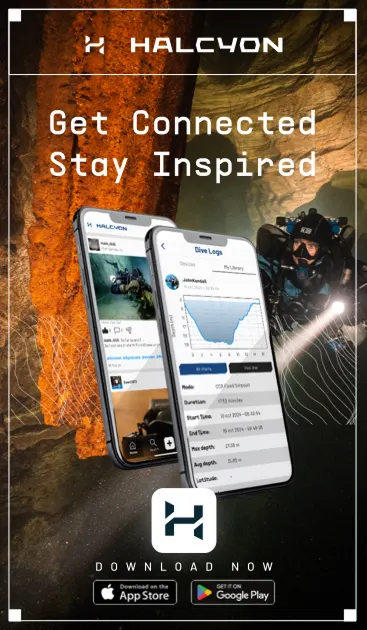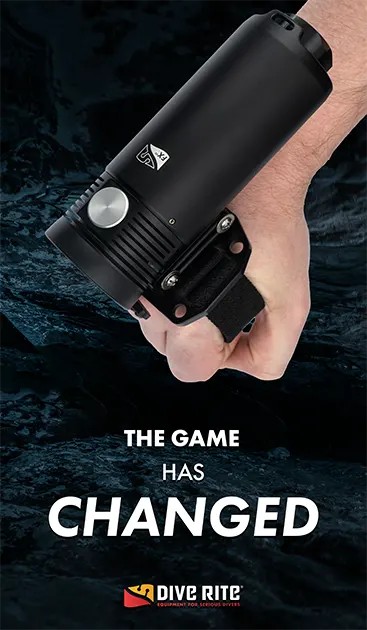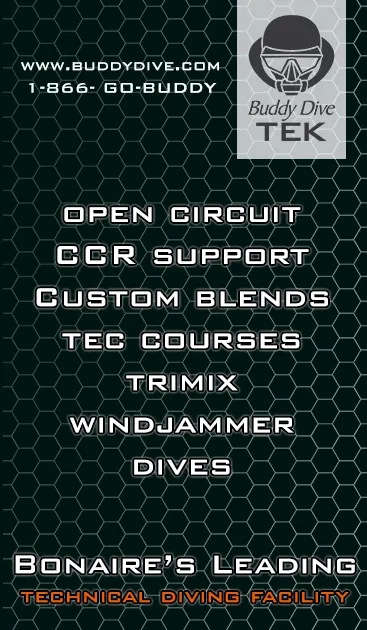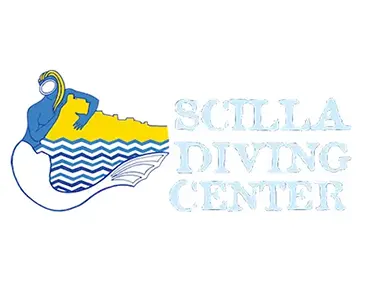Education
Excellence In Performance: Introducing GUE’s New Performance Diver Course
By Ulrik Juul Christensen, Jennifer Thomson, & Dorota Czerny. Photos by Julian Muehlenhaus unless noted.
A transformational course for existing divers not aiming for the technical path—yet…
The Global Underwater Explorers (GUE)’s Fundamentals course has long been the primary entry point for certified divers looking to join the GUE community, participate in GUE projects, and pursue advanced GUE technical, CCR, and cave training. However, GUE has noticed an emerging trend: Many divers are taking Fundamentals with little or no interest in progressing into technical diving right away, and these students find the Fundamentals course too intense, leaving little room for a slower build-up of foundational skills.
These divers’ goal is to primarily focus on building comfort in the water and refining buoyancy, trim, and propulsion skills. They recognize that a four-day course packed with procedural skills necessary for advanced diving could become overwhelming when trying to master the foundations. To meet this need, the new GUE Performance Diver (PD) course offers a streamlined, two-day introduction to GUE’s methods and foundational techniques. It immerses lesser-experienced divers in GUE principles but emphasizes quality training during in-water time.
The PD course maintains core GUE principles—equipment configuration, trim, buoyancy, stability, kicks, awareness, and teamwork—while providing a more accessible pathway into GUE. The key benefits for newer divers include:
- Maximizing in-water time as theoretical components are presented through an online, adaptive learning platform
- Reinforcing foundational skills with real-world experience dives
- Earning a GUE entry certification in a shorter time frame, empowering divers to practice sooner with like-minded divers and minimize skill decline
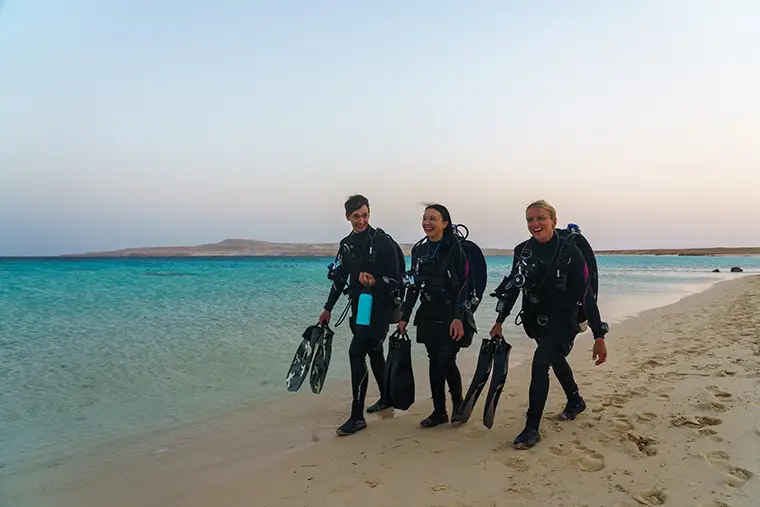
LEARNING ARCHITECTURE AT GUE
GUE was founded by pioneers of technical diving. Unlike typical diving education programs, GUE’s mission centers on equipping its members with the skills needed to participate in some of the world’s most advanced diving expeditions and exploration projects. This focus has driven the creation of one of the most rigorous training programs within and beyond the diving world.
GUE’s learning engineering team and instructor base include highly respected explorers who are actively involved in significant expeditions and projects. All GUE instructors are required to be not only skilled educators but also experienced and active exploration divers, project participants, and role models whose commitment and expertise inspire the next generation of divers. Enrolling in a GUE course means learning from someone who truly “walks the walk” and who embodies firsthand experience and a deep dedication to safe, impactful diving.
Mastery learning, learning engineering—from the art of not dying in caves
In order to understand how GUE elevated learning engineering to such an unusually high level, we need to understand exactly what learning engineering is. Learning engineering is the application of learning science and cognitive research to design highly effective educational programs. In GUE’s case, this approach could be described as practical, experience-driven instructional design refined through years of iterative development. Without explicitly labeling it, GUE adopted what is now known as a mastery learning approach: a method focused on ensuring that learners truly internalize skills and can apply them effectively. Mastery learning isn’t just about attending a course or practicing; it’s also about achieving genuine, usable proficiency that prepares learners to operate confidently in the real world in which they aspire to work or dive.
In their upcoming book on mastery learning, to be published in 2025, educational experts Tony Wagner and Ulrik Christensen highlight GUE as an exemplary model of effective educational design—likely driven by necessity. In exploration diving, where safety is paramount, true mastery is crucial; without it, divers would face significant risks in extreme environments like cave or deep wreck diving. Simply put, the urge to survive the most extreme dives drove an unparalleled approach to educational design.
In 2022, GUE launched a comprehensive overhaul of its curriculum, re-engineering all programs with insights from the latest research in learning science and human factors. This redesign encompasses all certification levels, from Open Water and Discover Scuba to advanced programs like Cave CCR or training on depths up to and beyond 100 m/330 ft. Additionally, GUE is enhancing its instructor development programs and introducing a new pathway to welcome instructors from other agencies who align with GUE’s values and approach to diving.
The transpiring concept throughout all these courses is “deliberate practice.” (Anders Ericsson: PEAK – How to Master Almost Anything, 2016). Deliberate practice is a highly structured and intentional form of practice aimed at improving performance in a specific skill or area. Unlike general practice, which may involve repeating an activity, deliberate practice involves focused efforts on tasks just beyond one’s current abilities with immediate feedback and adjustments for improvement.
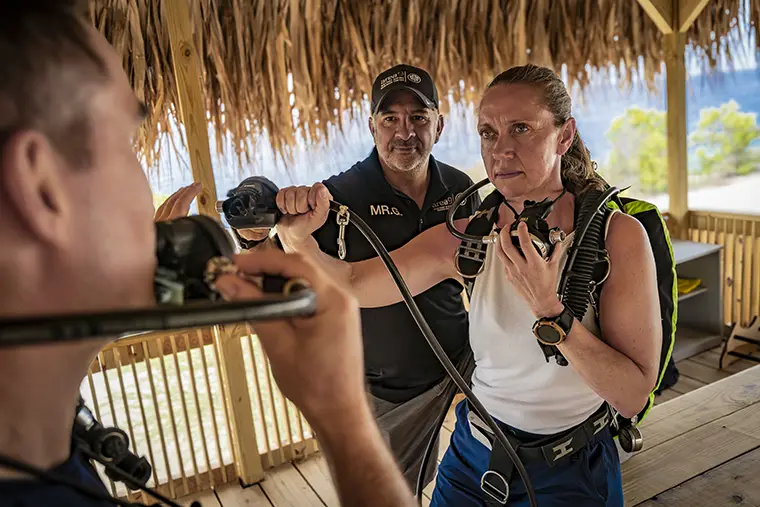
Key components of deliberate practice include:
1. Clear Goals: Setting specific, challenging goals that target areas for improvement rather than merely repeating what’s already known.
2. Focused Attention: Concentrating deeply on the practice, with minimal distractions, to maximize learning and retention
3. Immediate Feedback: Receiving feedback—via a coach, instructor, or self-assessment—to identify mistakes and refine techniques promptly
4. Reflection and Adjustment: Analyzing performance in order to make adjustments and refine skills, allowing for continuous improvement over time
Deliberate practice requires effort and consistency and often involves pushing oneself out of a comfort zone to tackle difficult aspects of a skill. This approach is commonly seen in fields like sports, music, medicine, and the elite branches of the military, but it can be applicable in any area where high-level proficiency is desired.
No more written tests & the power of Formative Assessment
One of the most prominent changes to the programs is that the final theory exams are gone. The new mastery learning architecture monitors the development of competencies at very high resolution and granularity. The high-frequency, formative assessment allows instructors to eliminate the written tests; learners are continuously assessed, but with the primary goal of aiding the learning process. In this model, you can only fail if you quit. There are only two grades: Top marks or incomplete!
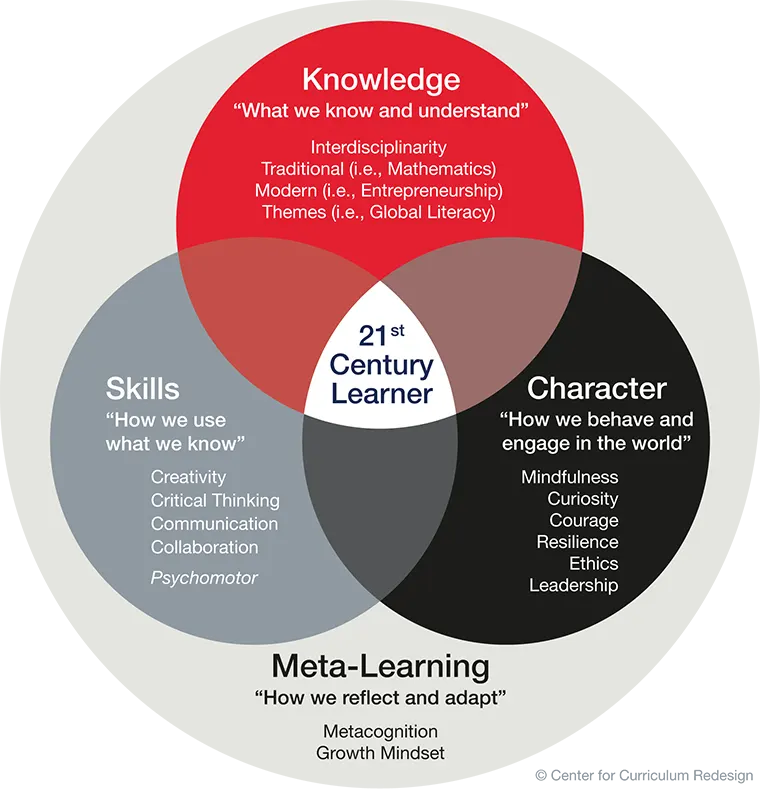
Four-Dimensional Learning
GUE has adopted the Four-Dimensional Education framework (Charles Fadel et al: Four-Dimensional Education: The Competencies Learners Need to Succeed, 2015) to create a multifaceted approach to learning, emphasizing the cognitive and psychological skills needed to manage complex diving and exploration safely.
1. Knowledge: Divers at all levels must have a deep understanding of the science and mechanics of diving, including topics like breathing gas dynamics, decompression theory, equipment function, gas management, dive planning, and emergency procedures. The “why” behind each concept is crucial to understanding and memorizing the critical components that influence a diver’s decision-making underwater.
2. Skills: Diving skills go beyond basic techniques to include precision trim and buoyancy control, multiple kicks, stability and control in water, and problem-solving skills specific to complex or emergency scenarios. Advanced divers must also develop meticulous planning and communication skills, working as a team to coordinate complex dives. Situational awareness and risk assessment are essential technical skills for all divers, but specifically in demanding conditions in more advanced diving environments.
3. Character: More advanced diving requires resilience, self-discipline, and remaining calm under pressure. Character traits like accountability, patience, honesty, and humility (i.e., acknowledging the limits of personal skill and environmental challenges) are essential; they help divers approach dives with a responsible attitude. Perseverance, fairness, and ethical responsibility ensure divers respect environmental conservation, promote the safety and well-being of other divers, and foster a safety-oriented culture.
4. Meta-Learning: Learning to understand and reflect on personal progress, limitations, and responses to stress is crucial in advanced and technical diving. Meta-learning involves developing self-awareness about one’s physical and mental responses to diving conditions, allowing divers to manage fear, stay focused, and adjust to unexpected events underwater. Emphasizing continuous learning and adaptability is essential: Advanced diving is a long journey that requires updating and adding skills and knowledge in line with evolving technology and techniques.
By applying these four dimensions, GUE will develop divers who are even more knowledgeable, skilled, mentally resilient, and capable of learning and adapting in challenging underwater environments. This holistic approach will enhance safety, encourage personal growth, and promote a mindful diving community. The same principles are applied from the very start—just as they are in the Performance Diver course.
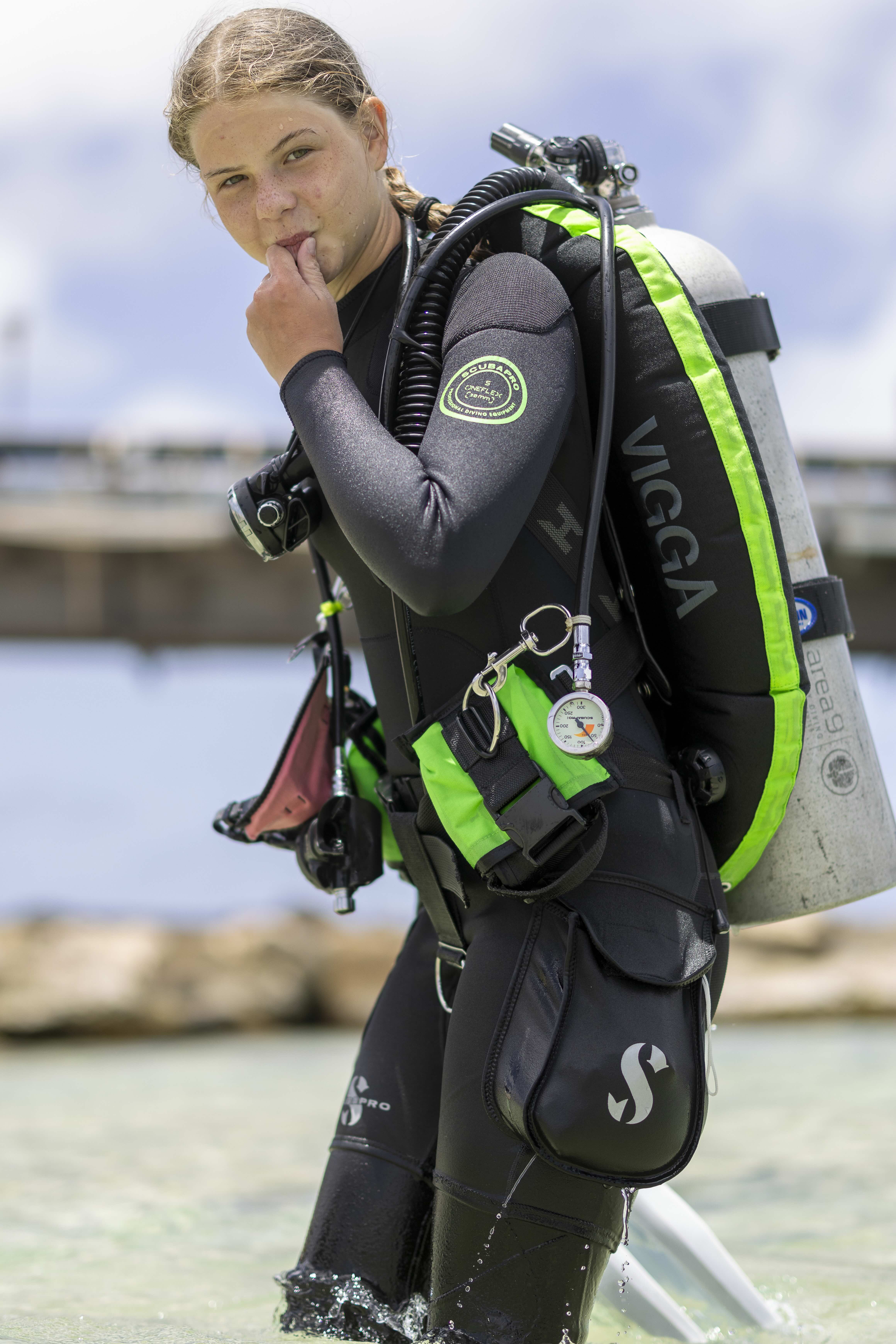
80/20 — 80% Character + 20% Skills
GUE divers have earned a reputation—even among other technical divers—for a near-religious commitment to how they dive: minimal and standardized equipment, consistent dive styles, and rigorous procedures paired with notoriously challenging entry courses. While there are myths, like needing a black dry suit or Halcyon gear, the real standards—uniform equipment, dive styles, and standardized procedures—are very much in place. And the reason for GUE’s entry-level course, GUE Fundamentals, being one of the most demanding in the industry, isn’t about appearances; it’s about maintaining standards on par with high-performance, high-reliability positions like fighter pilots, physicians, special forces, and astronauts. In fact, only about one-third of GUE students achieve a full pass on their first attempt.
Over the years, GUE Fundamentals graduates have walked away with technical skills like back-kick, helicopter turns, and the ability to perform complex tasks as a team—all while maintaining buoyancy, trim, and control underwater with awareness, allowing them to respond to unpredictable variables. But these physical skills are only part of what they take with them. Students forge a much more critical skill set—resilience, perseverance, and the ability to remain composed under pressure—through the course’s intense, escalating challenges. GUE’s training reflects the reality that technical divers choose this path not for ease, but for growth, preparing themselves for the real-world demands of advanced diving.
The philosophy is akin to military principles: “Train the way you fight—fight the way you train.” As GUE founder Jarrod Jablonski puts it, the goal is to become “comfortably uncomfortable.” While refining techniques like an efficient back-kick takes considerable practice, cultivating character skills such as leadership or resilience and other 21st-century skills, and metacognitive skills requires even more deliberate effort. That’s why GUE’s course design continuously pushes learners’ performance boundaries, honing not just psychomotor skills but character.
GUE takes pride in its commitment to active feedback and adapting to the needs of the next generation of divers. One way it supports this refinement of skills is through the Performance Diver course—a stepping stone designed for divers who not only recognize the need to hone their core skills but are also motivated to gain the experience needed to excel. The transition from Technical Fundamentals to recreational performance isn’t about creating an “easier version of Fundamentals.” It’s about ensuring a path to excellence at every level with focused skill-building in manageable steps. Then, when ready, students can advance to courses with escalating challenges equipped with the confidence and competence to meet them.
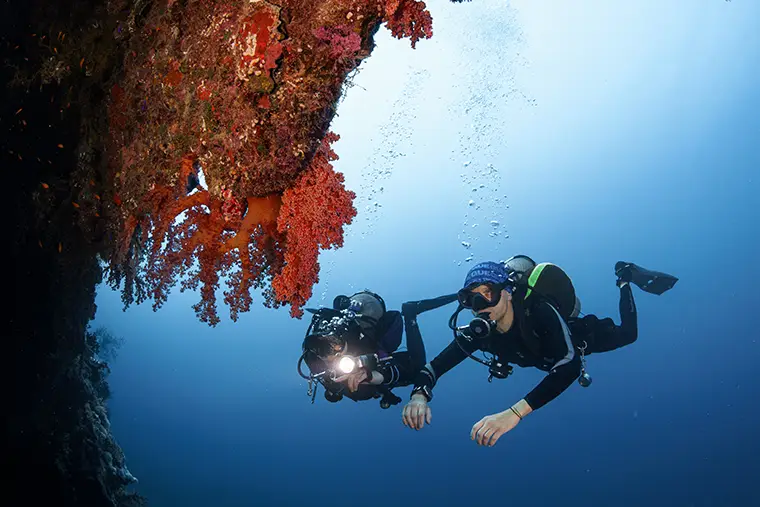
Doubling Down on Skills and Character Building
The driving force behind GUE’s next-generation education programs has been the ambition to improve the quality of in-water training by an order of magnitude. Drawing on cutting-edge methods from fields like emergency medical training, fighter pilot preparation, and other high-performance, high-reliability sectors, GUE’s approach emphasizes maximizing hands-on learning through innovative instructional techniques.
One of the most significant breakthroughs over the past 15 years has been the use of a flipped classroom model with adaptive learning, allowing students to complete 95% of their knowledge acquisition prior to in-person and in-water training sessions. This approach demands true mastery of theory before face-to-face training, which traditional e-learning alone cannot reliably achieve. To ensure that learners are thoroughly prepared, GUE partnered with Area9 Lyceum—pioneers in adaptive and personalized learning technology for high-stakes environments—and the Area9 Mastery Diving Research Center in Bonaire, one of the leading research facilities in educational design for diving and a certified GUE Premium Dive Center.
Using Area9’s Rhapsode Capable™ platform, customized for GUE, all aspects of the learning process are seamlessly integrated into one system. The platform includes adaptive pre-course knowledge acquisition and a skills and competency tracking system, which is currently in final testing and will be fully launched in 2025.
For GUE’s Performance Diver (PD) course, this means that learners establish a high-quality knowledge foundation similar to the traditional GUE Fundamentals course, but with a significantly reduced time requirement for in-person lectures and written tests. Despite the shorter duration, the GUE PD course delivers more than 50% more in-water training and skill development than the longer, previous Fundamentals Part 1 course. Similarly, the upcoming GUE Technical Fundamentals course will feature nearly double the amount of practical training in-water time compared to the current Fundamentals program.
It’s important to emphasize that the knowledge component has become more rigorous, not less. The adaptive platform provides a 100% competency check at a highly detailed level, predicts knowledge attrition, and offers adaptive refreshers for topics likely to be forgotten since the last class. Additionally, the modular design minimizes overlap across courses, streamlining the learning path as divers progress through advanced levels.
So, is GUE finally selling out?
Absolutely not! GUE made a strategic choice to strengthen its technical programs with significant advancements in rigorous, mastery-based skills training and even more extensive in-water practice. At the same time, GUE makes its core methods and skills accessible to recreational divers who want to elevate their diving to the next level.
Accessible: Made to Accommodate the Widest Range of Learners
GUE’s adaptive learning platform is designed to accommodate a wide range of learners with special needs. Even without enabling the special ‘Accessibility’ mode that increases contrast and, for example, optimizes the content for screen readers, GUE Instructor Francesco Cameli concludes: “As someone with severe dyslexia, I found the multiple ways of engaging with the questions incredibly helpful in fully grasping what part of the material was being tested. I especially appreciated being able to listen to the questions, which helped me ensure I was on the right track.” All content is available in two different ways: A) as intelligent e-book formats that are optimized both in terms of writing style and conceptual efficiency, B) As mobile-friendly, broadcast style, bite-sized explanations as well as the voice-over optimized to listen instead of reading.
The GUE Performance Diver course is a great addition, providing a flexible, accessible pathway into GUE training and culture. Unlike the intensive four-day Fundamentals class, this course allows divers to train in manageable segments: it’s perfect for those easing into GUE or unable to commit to four consecutive days. As an instructor, I’ve seen how this program effectively builds skills in a structured, approachable way, creating a strong foundation for future GUE training. I’m thrilled to teach this course and see its positive impact on divers.
Nevcan Uludaş
The GUE Performance Diver (PD) course transformed my approach to recreational diving. Despite previous certifications, I quickly realized the course’s comprehensive materials and detail-oriented training highlighted gaps in my skills. Through in-depth knowledge, hands-on drills, and rigorous in-water sessions, I gained a deeper understanding of diving foundations from buoyancy to safety protocols. This course isn’t just about diving; it’s about diving well. It’s an absolute must for any diver seeking to elevate their skills and confidence.
Daniel Yeo
Return to GUE: Expanding Diver Training
DIVE DEEPER
InDEPTH: GUE Introduces Tech 3: Join the Final Part of GUE’s Technical Trilogy
InDEPTH: Project Divers Are We By Guy Shockey and Francesco Cameli
InDEPTH: GUE Project Diving from Foundational to Exploration-grade By Jenn Thompson
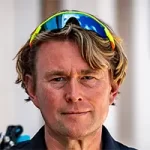
Ulrik Juul Christensen, MD
Ulrik is recognized worldwide as an expert in advanced learning architecture and has pioneered several of the most widely used learning technologies for personalized and adaptive learning. He is the Chairman & CEO of Area9 Lyceum, which is a world-leader in advanced learning content systems and adaptive platforms, and owns the Area9 Mastery Diving Research Center in Bonaire. Ulrik is a volunteer leader of the GUE projects to re-architect the GUE learning platforms, and he is on the Board of Directors of GUE. He is educated as an MD from University of Copenhagen.

Jennifer Thomson
Jennifer was GUE’S NextGen Scholar for 2022-2023 and used the year to highlight the role that recreational scuba diving can play in scientific operations. In 2022, she spent 6 months onboard the OceanXplorer for the Red Sea Decade Expedition, working as a logistic coordinator and scientist on the eDNA, deep-sea coral, and megafauna teams. In 2024, she joined GUE HQ to support global project coordination, Project Baseline, the NextGen Scholarship, and the Legacy Project. Jenn holds an MSc in Marine Ecosystems Management (University of St Andrews), a diploma in Human Spaceflight, and an Honorary Research Fellowship in small mammal socio-ecology.

Dorota Czerny
Dorota’s roles as GUE’s Executive Vice President, Board of Directors Member, Instructor Evaluator, and Instructor Training Program Director demonstrate her extensive experience and dedication to the world of scuba diving. Her experience in technical, cave, and rebreather diving, coupled with her academic background in political, social sciences, and journalism, gives her a unique perspective on exploring the underwater world and educating others. She took up the Learning Engineering training from Area9 Lyceum to strengthen her abilities and commitment to GUE’s goal to develop a sustainable future to empower new generations to follow in the footsteps of GUE’s founders.

